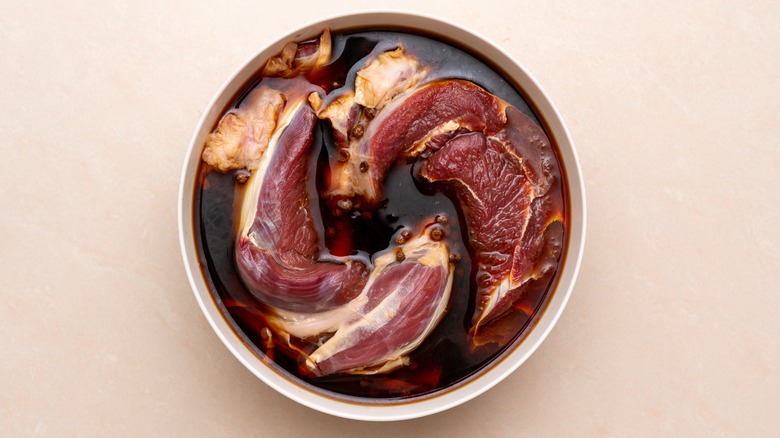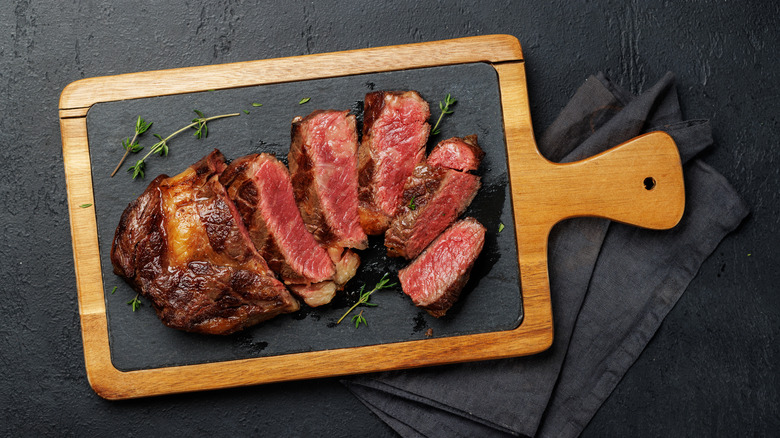The Most Important Rule When Working With A Meat Marinade
No matter how incredible a piece of meat is, if it's cooked without seasonings it will never be the best it can be. Even just a dash of salt is enough if you're in a rush. But, if you have time to spare, marinating meat can make a meal truly special. Unfortunately, it's rather easy to make mistakes when using a marinade. You might not let your meat stew for long enough to get the full effects, for example, or maybe you let it marinate too long. But these aren't the worst things you can do; that would be failing to completely immerse your meat in its marinade within an airtight container or resealable bag.
The point of a marinade is both to infuse flavor and to tenderize the meat. Should you not ensure that every inch of surface is immersed, your finished dish will be both inconsistently flavored and not as tender as it could be. With the amount of time some marinades need, that's hard to stomach.
Why your meat should always be fully immersed in a marinade
The science behind fully immersing your meat in a marinade is fascinating. Essentially, all parts of the marinade must work in conjunction to deliver the best possible dish. Those parts are salt, fats such as various kinds of oil (but not butter since it solidifies in the fridge), acids such as wine or lemon juice, and whatever other seasonings besides salt your heart desires.
The two parts that do the brunt of the technical work are the salt and the acid. While the acid breaks down connective tissue, salt breaks down proteins and helps extract moisture from meat, granting the marinade entrance into its fibers. When the marinade starts entering the meat, the fat transports all the flavor inside. This is because many common marinade ingredients, including fresh and dried herbs and spices, dissolve into the fat. If you, say, plopped a steak in a container of marinade and the liquid only came up half way, then only half your steak would receive these effects. So yeah — don't do that.
Other tricks to improve your marinade's performance
Ensuring your marinade is completely covering your meat isn't the only secret to maximizing flavor. You have to create a balanced marinade in the first place, which requires proper ingredient ratios and not using too many ingredients. That means three parts oil to one part acid, and one part salt to one part of your other seasonings. When you're putting these parts together, don't be afraid to get creative. Some of the most unusual ingredients can make the most interesting flavor combinations.
Another trick involves pat drying your meat after pulling it out of the marinade and before cooking it. Failing to do this can strip away your chances of getting a good sear. No lovely crusty brown sear means less flavor. Or, you can marinate your meat after you cook it to avoid this complication and take advantage of just-cooked meats' inclination to reabsorb moisture lost while cooking.


